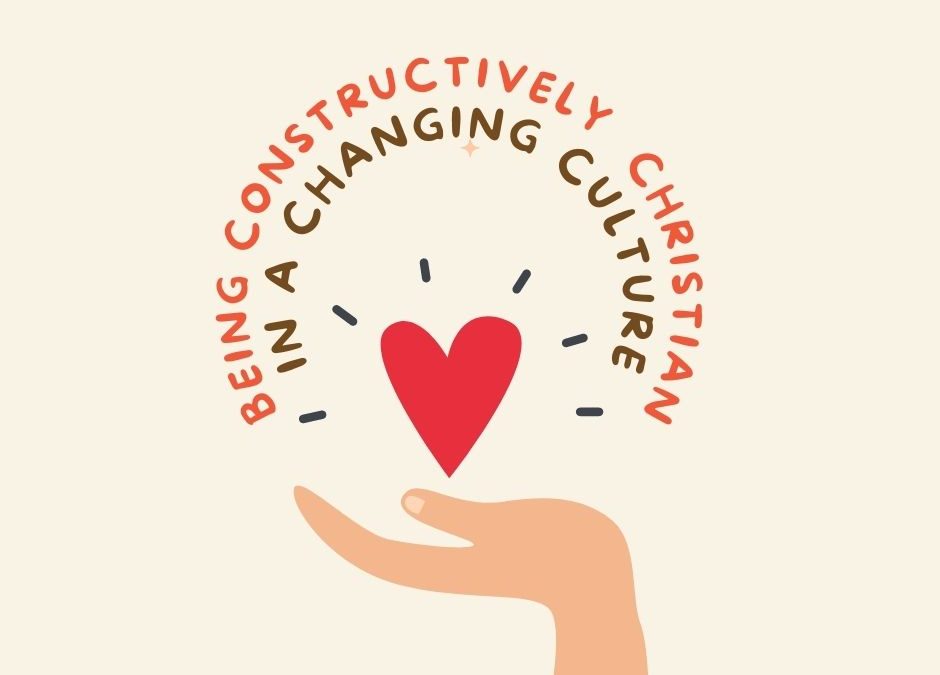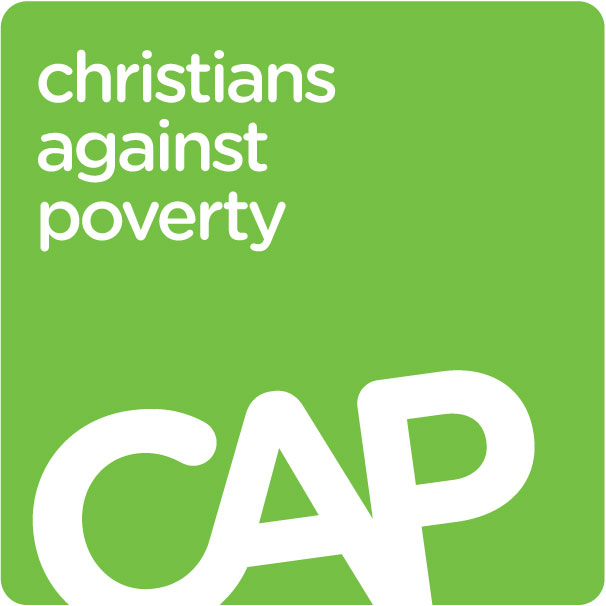
by Dr Stuart Lange | 29 Jul , 2022 | Articles, Christianity and Social & Moral Issues
In countries dominated by western culture, there continues to be admiration for compassion, and respect for honesty, integrity, and humility. But there is no doubt that recent cultural trends in western countries no longer give general support to Christian faith and to many other Christian values. This affects how Christians and churches are viewed, and also how many Christians themselves think and act.
Scepticism about Christianity (on both scientific and ethical grounds) has become increasingly fashionable, and Christians in public life are increasingly subject to suspicion. Contemporary post-modernist thinking assumes that truth is subjective and uncertain, and that truth is whatever you choose it to be. Christian truth claims can thus be seen as over-confident, or arrogant.
Individualism and consumerism emphasise the centrality of self and the primacy of individual choice. The priority of personal happiness and pleasure is rarely questioned. Calls to holiness or righteousness are mocked. Christian beliefs about gender, sex, or marriage (views which were shared by most societies until very recently) are increasingly reproached as unloving, harmful, and unable to be tolerated. Churches can variously be regarded as outmoded, empty, irrelevant, narrow-minded, or dangerous.
In the context of our changing, less Christian-friendly context, Christians should not be intimidated, or become weakened in faith. We must remain faithful to Christ and the word. We must also think carefully about what we believe, and how we live and express that. We need…
- to beware of becoming conformed to this world (Rom 12:2)
- to be deeper into the scriptures (Ps 119:11)
- to be a people of constant prayer (Eph 6:18)
- to reflect Christ in all we do and say (Matt 5:13-16)
- to be loving, not a clanging gong (1 Cor 13:1)
- to be humble (James 4:6)
- to be thoughtful, gentle, and respectful in how we speak about our faith (1 Pet 3:15)
- to be good citizens (Rom 13:1), above reproach (1 Pet 3:16-17, 4:15)
- to be peace-makers (Matt 5:19)
- to live peacefully with everyone so far as it depends on us (Rom 12:18)
- to overcome evil with good (Rom 12:21)
- to recognise all Christians as part of the same body of Christ (Eph 4:3-6)
to receive the wisdom that comes from above (James 3:17), which is ‘pure, …peace-loving, considerate, submissive, full of mercy and good fruit, impartial and sincere’.

by Sam Garaway | 21 Apr , 2022
Budget Solutions Adviser – Auckland
- Bring hope and light back into people’s lives by providing practical solutions to families across Aotearoa who are grappling with unmanageable debt.
- Great interpersonal skills needed with the ability to follow process and procedure, and be solutions focused.
- A sound understanding of personal budgeting or similar skills would be beneficial, however full training will be provided
As part of the wider Client Services Department, the Budget Solutions Advisor is a role that is critical for setting clients up for the win on their journey out of debt. Therefore, it requires someone who can deliver a high level of accuracy, has the ability to think of the bigger picture when completing budget assessments, and who has the ability to learn new skills.
If this sounds like you and you can’t wait to join our growing professional team bringing hope and help to New Zealanders, then we would love to hear from you!
About CAP
CAP is a Not-For-Profit Organisation working across Aotearoa to support individuals and families who are living in unmanageable debt and poverty.
Every month, CAP receives hundreds of phone calls from New Zealanders across Aotearoa who are grappling with unmanageable debt. Being in unmanageable debt means that their debts consume more than they have to give; individuals and families have no other choice but to sacrifice their everyday living essentials to pay their debts.
CAP’s professional Debt Help Service enables our clients to work towards a brighter future; clients are supported to be able to repay their debts using their own income only, in accordance to their unique budget created just for them. As with all of CAP’s services, our Debt Help Service is also delivered in partnership with our local churches across Aotearoa, enabling our clients to receive holistic care as they journey towards becoming debt free.
About this Role
As part of the New Clients Team, the purpose of this role is to ensure that all our new clients who are engaged with the CAP ‘Debt Help’ service are set up for success in their journey out of debt. This role requires a mix of excellent big picture thinking and interpersonal skills. It is an extremely unique and rewarding role that is vital to the work of CAP.
About You
CAP values character, culture, and competence. If you have the right attitude and an appetite to learn and do things well, we have what you need to be able to continue growing and developing in this role.
At the application URL below you can find a link to the job description for a detailed outline of the skills, abilities, and attributes we are looking for.
Some of the Perks and Benefits of Working at CAP
- You will be entering an extremely unique and rewarding role, joining a team of kind, fun and passionate individuals who are all for our clients and each other.
- CAP has an exceptional approach to work-life balance with opportunities for generous flexible working arrangements and annual leave provisions.
- Staff wellbeing and health is highly important at CAP. Whether it be you or your family, we do our best to offer what you need to be supported well in your role.
- We recognise that Covid 19 has impacted job security in many workplaces. CAP is blessed to be able to say in confidence that we continue to thrice and expand as the need for our service across Aotearoa grows.
- The biggest perk of all – you will see and be a part of many lives and generations positively impacted and changed.
Please note: You are required to disclose any convictions or pending charges in your application, and a Ministry of Justice vetting check, with acceptable results, will be a condition of appointment to this role.

by Keziah Muir | 30 Mar , 2022
MiCamp Trust is a group of 3 spectacular Christian Camps in the central North Island. The camps are in separate locations – Kakahi, Whakamaru, and Waitetoko.
We offer a hassle-free camping experience with friendly staff, great facilities, excellent food, and a wide range of activities based around the picturesque settings of each campsite.
We host a large variety of groups including Casual Self-Catered Bookings, Family Reunions, Youth Groups, Church Groups, School Camps, Conferences, Weddings, National Organisations, Disability and Health Organisations, Training Organisations and Team Building Events.
We also run our own ministry camps all through the year, such as; Holiday camps, Families camps, Leader’s Training weekends, and Teens camps.
See our website for more about these camps: https://www.micamp.co.nz/our-events.html
The aims of the camp are:
- To give children and young people the opportunity to engage in healthy outdoor pursuits which build their self-esteem.
- To provide settings for campers to appreciate the beauty of their environment and to realise the role they need to play in its preservation.
- To provide values-based programming, including life skills education – offering alternative choices to the negative pressure of violence and abuse present in today’s society.
- To make the Gospel known and show the relevance of Christian life in today’s world.
For more information or any inquiries, head to our website or phone us today.
| www.micamp.co.nz | (07) 386 7967 |

by Dr Stuart Lange | 28 Jan , 2022 | Articles, Christianity and Social & Moral Issues, Christianity in New Zealand
As we move into 2022, it already promises to be just as challenging a year as last year, but in its own way.
Front of mind for many church leaders is how our churches may best navigate the complications of life in the Red setting, showing love and respect to everyone while also trying to keep all our people as safe as we can. Covid and the lockdowns have had a negative effect on many churches, in terms of distraction, weakened engagement, reduced attendance, and disunity. But some churches have found many opportunities for spiritual and relational growth, innovation, renewed small groups, and mission.
Beyond all that, there remain some deeper challenges for church and society in Aotearoa New Zealand, such as…
- The accelerating climate crisis, and widespread unwillingness to accept effectual changes
- Worsening social inequity
- The unaffordability of home ownership for so many people
- A prevalence of broken marriages and temporary relationships
- Much violence, abuse, and family instability
- The harm caused by various drugs
- Stress, loss of hope, and mental health issues
- Suicide (especially among youth)
- More understanding, peace, and reconciliation needed between cultures
- The preoccupation of many New Zealanders with their own choices, comforts, and pleasures
- The pervasive and often negative influences of social media
- Much confusion in society (and sometimes in churches) about God, truth, and the Gospel
- A prevailing loss of confidence in the Bible or the Christian message
- A general unawareness of the positive influences of Christian values in NZ, past and present
- A growing disdain for committed Christian faith, and its marginalisation in many quarters
- Many churches’ loss of younger generations to faith and Christian commitment
- The struggle of churches to connect well with unbelievers and help them find faith in Christ
- The politicisation of radical moral views on sex, gender, abortion, euthanasia, hate speech, and ‘conversion therapy’, and their increasing imposition upon society
- The susceptibility of some Christians to unbalanced and less-than-biblical ideologies
If that is all the case (or even some of it), there is a lot for us to do in 2022!
Mā te Atua koutou katoa e manaaki, e tiaki,
(God bless and keep you all)

by Dr Stuart Lange | 11 Oct , 2021 | Articles, Christianity in New Zealand
As in society at large, Christian people and churches hold a wide range of views on all sorts of things, including some of the current issues around Covid and vaccinations. But here’s our take on what the majority of Christians and churches think in these matters…
1 Lockdowns
Almost all Christians accept that the purpose of lockdowns is to help prevent the spread of a highly contagious virus, and a major threat to public health. Yes, lockdowns seriously affect many businesses and livelihoods, temporarily restrict our freedom of movement, and have brought the suspension of large gatherings including church. However, lockdowns have spared New Zealand the huge loss of life that has happened in many other countries. In all parts of society, there appears to be some flouting of lockdown rules. But most Christians would not see that as responsible or morally right, and most do their best to comply with lockdown rules.
As Christians, we are biblically bound to submit to the law, and to respect and pray for those who govern. We don‘t have to agree with everything governments think or do. Who does, with any government? At the time the New Testament was still being written, some emperors were ruthless despots, who required people to either worship them or be put to death. The biblical injunction to obey the powers that be is not absolute, however: Christians should put God first if those in authority forbid us to hold or express our faith, or if they try to compel us to do something clearly unethical and wrong.
2 Vaccinations
As with society at large, the majority of Christians are willing to accept public health authorities’ assurances that Covid vaccines are generally safe and effective for most people, and that a high vaccination rate is the key to New Zealand starting to move beyond a reliance on lockdowns to manage the pandemic. Most church leaders accept that when a high percentage of the New Zealand population is vaccinated, all of us (including the unvaccinated) will be better protected against the virus, and that as a society we can then move forward. Some church leaders have been pro-active in encouraging their people to get vaccinated, to help protect them, while at the same time respecting individual choices.
For various reasons, a minority of Christians are unwilling or unable to take the vaccine, or have serious hesitations or worries about taking the jab. The anti-vax movement is not a specifically Christian movement, but it does include some Christians. Some are influenced by medical professionals here and overseas who have raised concerns about the Covid vax. Some others fear that something underhand could be going on.
To vaccinate or not is not an issue of doctrine, but a medical and public health issue. It is not an issue which excuses us from Jesus’ command to love one another, or which nullifies the principle of making “every effort to guard our unity in the bond of peace” (Ephesians 4:3). We recommend church leaders encourage their people to make their own well-informed, prayerful decision, to respect the conscience of others, and to avoid judging those who see things differently.
3 Vaccination certificates
Vaccination certificates could be another useful practical tool in the fight against Covid, at least in the short term until vaccination rates reach 90%. Because of Christian values of welcoming all, however, most churches would be very concerned if people without a vaccination certificate were excluded by law from attending church. Most churches will likely want to retain measures to help protect everyone, including those not vaccinated. Some unvaccinated people may choose to avoid mass gatherings for the time being. Those attenders who are vaccinated may be at a relatively low risk from those who are not. It was reassuring to hear the Prime Minister say that churches would probably not be included in laws to exclude the unvaccinated.
ALSO
In these strange and uncertain times, it is good for Christian believers and churches to keep the main things the main things: to love God, to love others, to proclaim Christ, to be salt and light, and to pray and work for the extension of the God’s kingdom.









